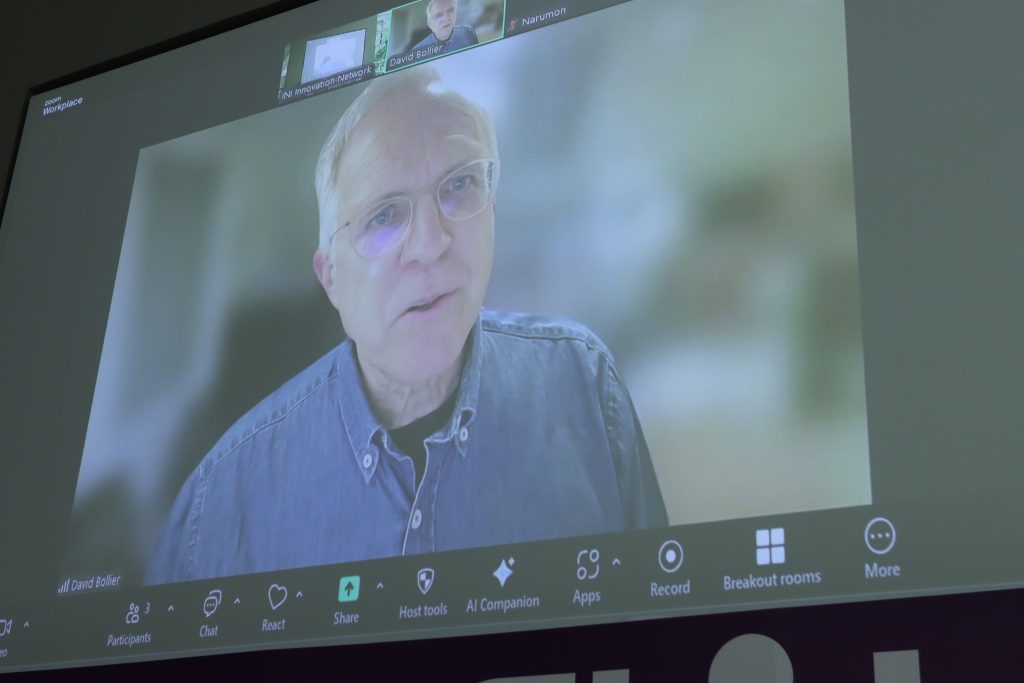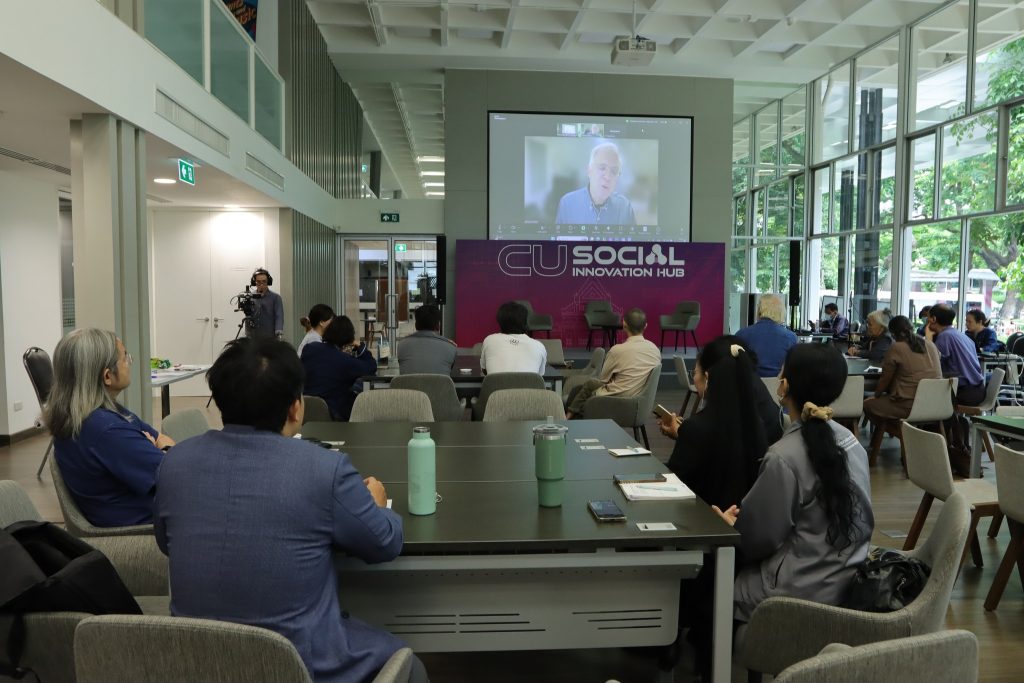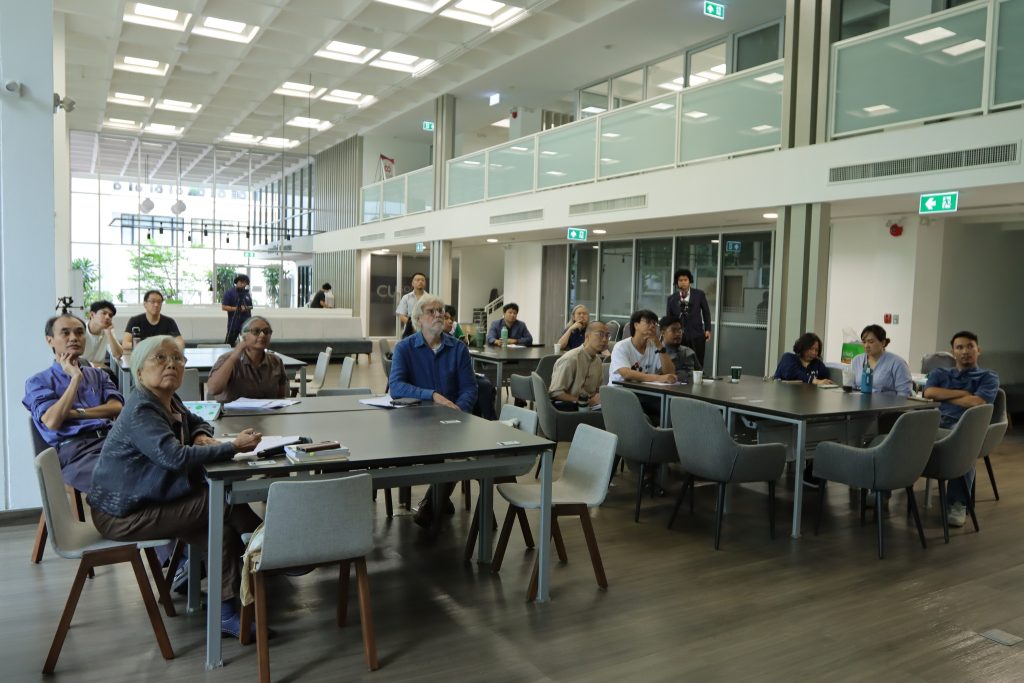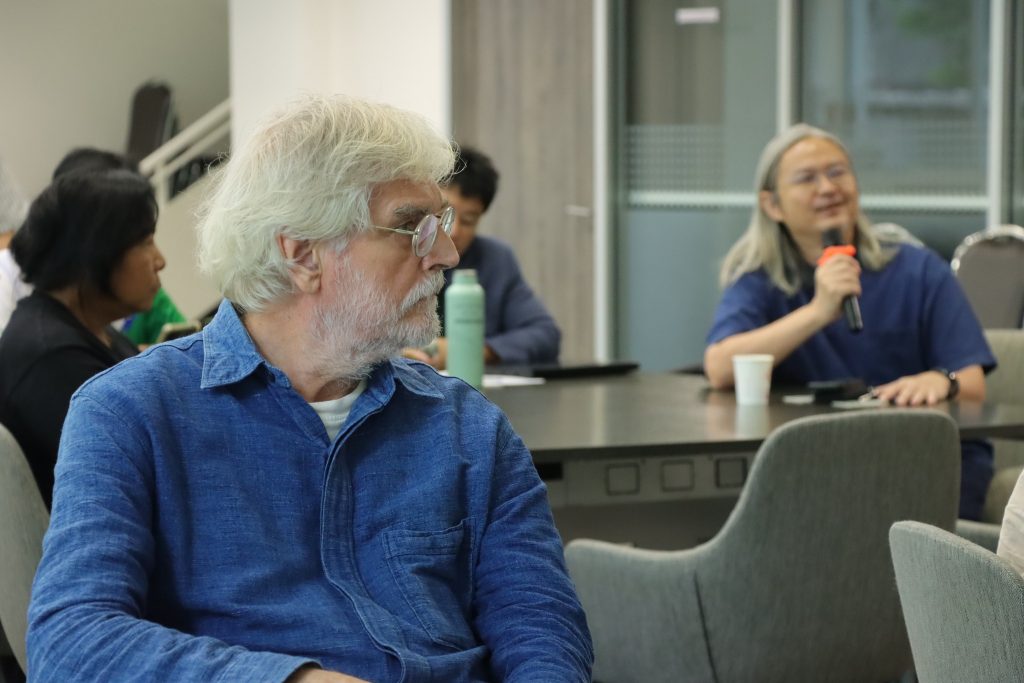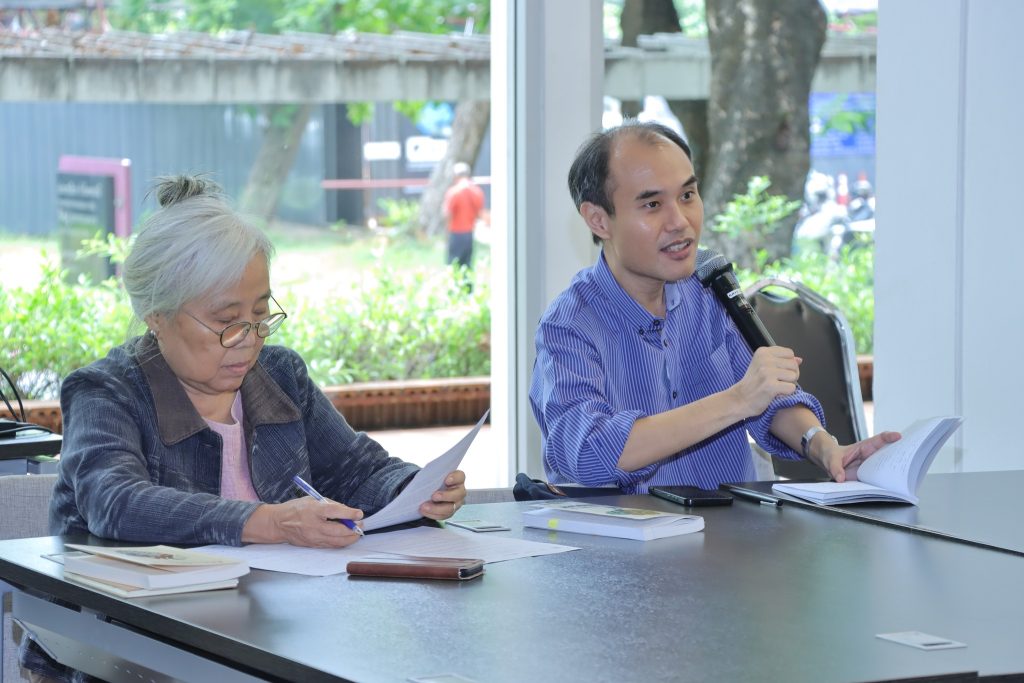Highlights from “Food as a Commons” Forum – May 10, 2025
Key Highlights from “Food as a Commons” Forum – May 10, 2025
Co-hosted by the Food Spirit Project, Political Economy Center, and Institute of Asian Studies, Chulalongkorn University, the second day of the Food Spirit Network Forum featured an inspiring online dialogue with David Bollier — author of Think Like a Commoner and leading thinker in the field of commons-based governance.
🌀 David emphasized that “the commons” is not just about shared resources, but a living social system — a space of relationships where people co-create the rules, care for one another, and shape their collective future.
🌏 Key Concepts from David Bollier’s Talk:
He illustrated living examples of commons in action, including Thailand’s Baan Mankong (Secure Housing Program) — which he sees not merely as public housing, but as a shared story where communities co-own and co-steward their spaces, in horizontal partnerships with the state.
He proposed 6 principles for building a “Commonsverse”, a framework to revive hope, restructure power, and ground sustainability:
- 🔹 Trans-local Federation of Subcommons
Connect local commons into broader, federated networks — not working in isolation, but in synergy across regions. - 🔹 Public–Commons Partnerships
Build partnerships between communities and the public sector, where communities lead — e.g. public land co-managed by local groups. - 🔹 Legal Hacks – “Recoding the Law”
Reclaim existing legal tools to defend commons and the rights of nature — e.g. recognizing the legal personhood of rivers, forests, or land. - 🔹 Relationalize Finance
Redesign finance around trust and care — such as revolving community funds rooted in mutual support, not just ROI. - 🔹 New Social Institutions
Co-create new systems of mutual care — like community-based childcare or food systems where everyone shares responsibility. - 🔹 Bioregion-Based Economies & Institutions
Ground economies in the ecological logic of place — reconnecting people with land, water, and air as interdependent beings.
🌱 These principles aren’t just theories — they’re emerging across the globe, including in Thailand, where local stories are beginning to reclaim community power, deepen relationships, and reimagine systems of care.
✨ David left us with a powerful reminder:
“The future may not begin with grand revolutions, but with small, rooted acts of care in every locality. And when woven together — they form a living, breathing new world.”
📌 Stay tuned for the full conversation with David Bollier and more sessions from the Food Spirit Network Forum: Co-Caring for Food and Communities — coming soon on the Food Spirit Facebook Page and YouTube: Food Spirit!
C
Co-hosted by the Food Spirit Project, Political Economy Center, and Institute of Asian Studies, Chulalongkorn University, the second day of the Food Spirit Network Forum featured an inspiring online dialogue with David Bollier — author of Think Like a Commoner and leading thinker in the field of commons-based governance.
🌀 David emphasized that “the commons” is not just about shared resources, but a living social system — a space of relationships where people co-create the rules, care for one another, and shape their collective future.
🌏 Key Concepts from David Bollier’s Talk:
He illustrated living examples of commons in action, including Thailand’s Baan Mankong (Secure Housing Program) — which he sees not merely as public housing, but as a shared story where communities co-own and co-steward their spaces, in horizontal partnerships with the state.
He proposed 6 principles for building a “Commonsverse”, a framework to revive hope, restructure power, and ground sustainability:
- 🔹 Trans-local Federation of Subcommons
Connect local commons into broader, federated networks — not working in isolation, but in synergy across regions. - 🔹 Public–Commons Partnerships
Build partnerships between communities and the public sector, where communities lead — e.g. public land co-managed by local groups. - 🔹 Legal Hacks – “Recoding the Law”
Reclaim existing legal tools to defend commons and the rights of nature — e.g. recognizing the legal personhood of rivers, forests, or land. - 🔹 Relationalize Finance
Redesign finance around trust and care — such as revolving community funds rooted in mutual support, not just ROI. - 🔹 New Social Institutions
Co-create new systems of mutual care — like community-based childcare or food systems where everyone shares responsibility. - 🔹 Bioregion-Based Economies & Institutions
Ground economies in the ecological logic of place — reconnecting people with land, water, and air as interdependent beings.
🌱 These principles aren’t just theories — they’re emerging across the globe, including in Thailand, where local stories are beginning to reclaim community power, deepen relationships, and reimagine systems of care.
✨ David left us with a powerful reminder:
“The future may not begin with grand revolutions, but with small, rooted acts of care in every locality. And when woven together — they form a living, breathing new world.”
📌 Stay tuned for the full conversation with David Bollier and more sessions from the Food Spirit Network Forum: Co-Caring for Food and Communities — coming soon on the Food Spirit Facebook Page and YouTube: Food Spirit!
